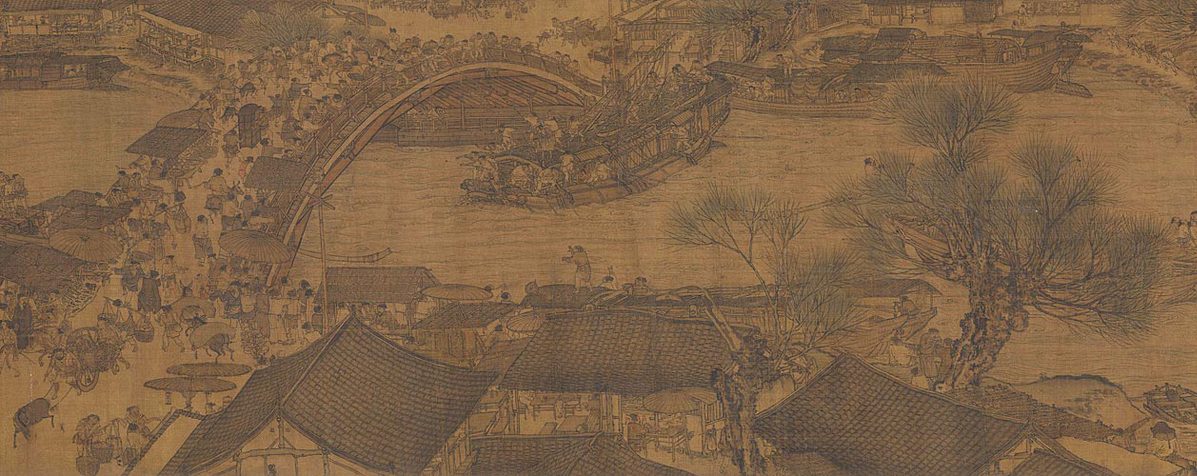

An ancient bustling street market brimming with pavement stalls and hawkers peddling goods as depicted in Riverside Scene at Qingming Festival, a masterpiece by Zhang Zeduan from the Song Dynasty (960-1279), has been found in Dengzhou city, central China's Henan province.
During excavation, archaeologists discovered special construction structures in some building ruins at the Dengzhou street market site. The structures were designed to support the house foundation above the drainage pipes. They also unearthed a lot of copper coins and ironware near the pipes. All the findings suggest that the house owners used to run shops along the street.
In ancient China, drainage pipes belonged to urban public facilities and many dynasties strictly separated residential areas from specialized markets, and citizens were not allowed to open shops in residential areas.
However, the shops found alongside the street at the site made full use of public facilities and took part of the street as their own extension areas, which is a typical embodiment of the development of commodity economy in the Song Dynasty, explained Bao Weike, a researcher with the provincial cultural relics and archaeology institute, who is also in charge of the excavation project.
The new discoveries in Dengzhou can serve as the physical evidence of the ancient economic transition from emphasizing agriculture and suppressing commerce to promoting the development of commodity economy at that time, said Sun Yingmin, president of Henan's cultural relics and archaeology society.
Previously, as the ancient capital of the Northern Song Dynasty (960-1127) was buried underground by sediments from the Yellow River, it was difficult to excavate its ruins and unearth relics. The new findings have helped to fill in the blanks of evidence for the relevant history.
During the Song Dynasty, Dengzhou was also a border city and had set up a border market. "The large amount of fine porcelain unearthed at the site indicates that it was probably also a market where the porcelain produced in the famous Deng kiln during the Song Dynasty was sold," said Sun Xinmin, head of China ancient ceramics society.
Currently, more than 1,200 square meters of the site have been excavated. To figure out the remaining mysteries, further excavation of the Dengzhou site is still underway.